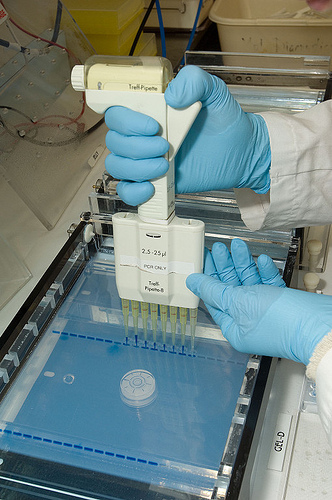
Ready, set, hike! With football season upon us, we want to help you “kick off” your citrus’ health. Whether you are a rookie or seasoned veteran when it comes to growing fruit, following these simple tips can help your citrus have a winning season.
1. Draft an all-pro citrus team
Dwarf varieties are often preferable for backyard growing because they take up less space, do not grow as tall, and are easier and safer to pick. When purchasing citrus trees, buying a healthy tree from a reputable seller is critical. If you are ordering a citrus tree, make sure the nursery or shipper is in compliance with federal quarantine restrictions. Read more »

An adult Asian Longhorned Beetle
Throughout August, a little-known beetle may emerge from the trees in your community. You might see its long black and white antennae inching out from a dime-shaped hole in your favorite tree. The pest, named the Asian longhorned beetle, kills trees from the inside out. It attacks 13 types of hardwood trees. Read more »
Hi, I’m Dr. Janet Whaley, an aquatic veterinarian and avid angler. I guess you could say fish are my passion! I work every day to ensure the continued health of our nation’s fish, so that in my spare time, I can be out on the water with my fishing pole and a camera.
Invasive species can spread unintentionally on land and in the water. This could damage our waters and our forests – and leave us with unhealthy or fewer fish to catch. I don’t know about you, but I want to be sure I can bring my family fishing for years to come. So I take proper steps to help keep invasive species in check. The basic steps all anglers (and boaters, too) need to keep in mind include: Read more »
Keep the lemonade flowing this Fourth of July! The stars and stripes and fireworks would not be the same without citrus–iced tea with lemon, key lime pie, lemon chiffon cake, fish with lemon, orange sorbet, lemon-garlic chicken and avocado lime salsa. And, as the temperatures rise, kids across American set up makeshift lemonade stands as a favorite way to earn a little spending money. Take time to stop and enjoy a glass.
Make this Fourth of July a celebration of citrus’ role in this holiday’s food and culture. My hope is to raise awareness of the serious threat that diseases like citrus greening pose to U.S. citrus so Americans can protect the refreshing flavors of summer. Read more »

An APHIS employee at the Center for Plant Health Science and Technology Otis Lab prepared an agarose gel for electrophoresis of DNA. The Otis Lab’s mission is to identify, develop, and transfer technology for the survey, exclusion, and control of plant pests and diseases.
It’s at that first alarm, when an invasive species is discovered within U.S. borders, that scientists at USDA APHIS’ Center for Plant Health Science and Technology (CPHST) power up to solve a biological puzzle and protect American resources. Read more »
When pest detections led China to suspend exports of logs from Virginia and South Carolina last spring, USDA began work to minimize the impact of this trade disruption on one of those states’ most important industries.
We began by negotiating with China to establish science-based standards to allow log exports to resume. Our work culminated in a visit by Chinese officials to South Carolina and Virginia. The delegation’s visit took them to facilities where state and Federal officials carry out agricultural inspections and treatments, tours of port facilities, and demonstrations of land management practices at forests, nurseries, and logging operations across Virginia and South Carolina. Read more »



